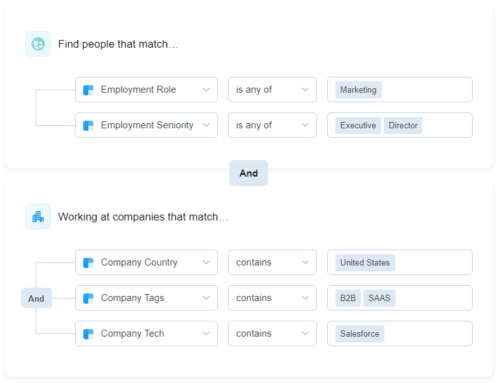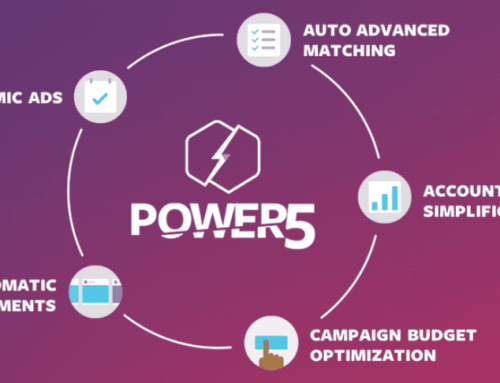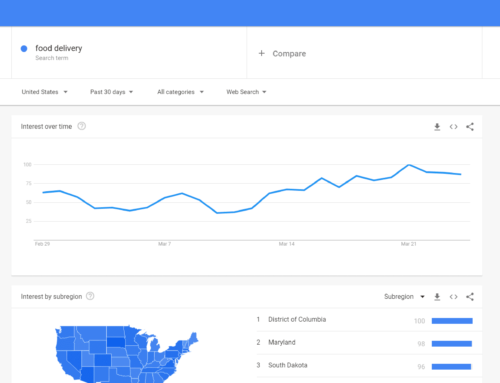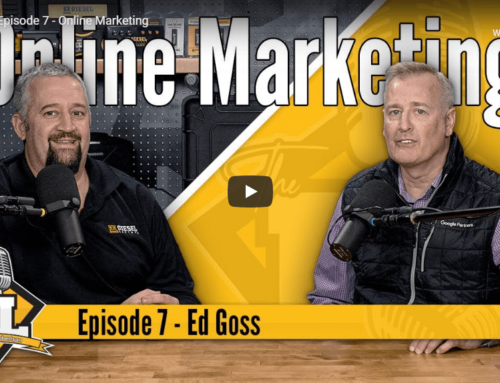I recently participated in a round table discussion about Smart Bidding and the upcoming changes with FB and Apple’s iOS14 privacy policies. The podcast was hosted by Dean Hua of Sachi Studio. Other guests included Tom Beckerle of jWeb Media and Amy Hebdon of Paid Search Magic.
Below you’ll find Part II of the session where we discussed Apple’s privacy update and impact to FB Ads. In addition, we each make our big PPC predictions for 2021.
Here’s a direct link to Part I, where we discussed Smart Bidding.
Full Transcript
Dean Hua:
Hey guys, welcome back. So this is part two of my PPC marketing round table discussion regarding Smart bidding strategies, whereas part one was focused on Smart bidding strategies. Part two is more of a casual talk surrounding the Facebook and Apple iOS 14 changes what we’re seeing there and how to repair them. Also, each one of us, make our own big boat predictions for PPC in 2021 and beyond. Question of the day, what sort of trends are you predicting for the PPC marketing industry heading into the future? Let me know in a comment section, and other than that, I’ll see you in the comments, see you soon bye.
As you know, Facebook iOS14 will really have an impact, at least I think on Facebook advertising. For those who don’t know, going forward, apps will be required to get permission from users to track them and access their devices, advertising identifier. So I guess my question for free to just chime in from anybody, how much of an impact does this have on Facebook advertising and do you think has any impact on Google advertising, Ed…
Ed Goss:
So huge impact on Facebook, I would say, which of course includes Instagram, WhatsApp, and everything else in that ecosystem. It will also impact other social media platforms that use essentially the same type of targeting methodology. Who is to say how much, we know that Apple has about 40% market share domestically, in terms of smartphones, which Facebook and Instagram, now have 90% of the traffic on their Smartphone base… so if you’re taking 40% of your audience and saying, now this is a black box, we have no idea how to target these people… that’s a big problem. There are workarounds, there will be people that do not opt-out, but I would expect a lot of people are going to opt-out. So long-term, I think towards the middle to end of 2021, I think we’re going to see a lot of advertisers that are marginal on Facebook leaving. The only saving grace is that the remaining advertisers we have less competition may be able to make the numbers.
Tom Beckerle:
I feel like we recently took over an account where we were having pixel issues, so we kinda went blindly with interest targeting, and we found a lot of success with it. So you still have… it hurts, don’t get me wrong, it does hurt, it stings, but you still have a lot of data from the activity that the user just does on Facebook. So again, it’s not a crushing blow, it definitely stings, but you can still find opportunity, you can find people that engage with your content and other types of content, and still have success there.
I think we… based on all these data breaches and whatnot, I think we were always probably gonna get here at some point, right. But I think we’re always gonna get here at some point where data tracking was gonna be frowned upon and we’re gonna get shoved away from it. I like receiving targeted ads… right, I know it’s ’cause we’re in the industry and we’re marketers, but I think to some degree, some people do too, they want to have content served to them based on their activity and behaviour, so again… Circle back to my first point, it hurts, but I don’t think it’s a crushing blow for anybody.
Ed Goss:
For me, the issue I had with the approach apples taking me, first of all, they have their own self-interest, there’s no doubt that this is not just altruistic to deal with privacy. But I think the problem is they’re not providing any context. They’re saying, would you like to be tracked or not be tracked? If you read it, it doesn’t really say that there are benefits for the user because keeping in mind too that Facebook also uses that information to serve you regular content on Facebook, so if you opt-out you may only see cat videos, whereas you’re a dog person.
Right, so we don’t really know what the impact is going to be. And then the other side of this is app providers that are advertising if they yield 100% or a good portion of their revenue from advertising. What happens to them when they serve effective ads anymore? So a lot of businesses are going to be impacted by this, and I believe it does affect the free web, and we may find that Facebook is $4.50 a month, two years from now.
Dean Hua:
Yeah, did you think last for half, this is a prelude to them to launch in their own ad platform, do you think that’s the end game?
Ed Goss:
Probably, but I don’t think through that interested in ads, to be honest, I think they’ll probably do it, but I think they want to go paid model, ’cause most of their revenue comes from when people buy apps through their app store. So they would just be happy if advertising went away and everybody sold apps through to their store, ’cause they get 30% on every sale. And then app producers that are currently running ads, they’re probably gonna get less revenue for that, so they’re going to have to come up with new ways, which means paid model.
Dean Hua:
Okay.
Amy Hebdon:
I think when it comes to privacy, to the privacy conversation like this is not new, I don’t remember a time where there hasn’t either been something imminent or right on the horizon about losing access to cookie data or to some sort of third-party data that’s gonna… For the purpose of targeting or re-marketing, and I see that more as a platform problem to solve than a marketers, not to say that people or marketers won’t be impacted by that, or advertisers won’t be impacted, but we are all ultimately impacted the same by losing access to data.
Tom Beckerle:
We face these kind of obstacles, it seems like every couple of years we get thrown a wrench, but again, the privacy issue I have Ed is, how does this impact those that are less fortunate? They can’t form an iPhone. Right, I guess that’s my big issue is if I can’t afford a nice shiny iPhone.
Google does have a provision for you to remove personalized advertising. You go to your Google profile and you turn it off, and you can even get more granular than that and turn of specific advertisers and features. So it’s not like Google hasn’t given you the option, they’re just not putting your face and saying it’s off or it’s on for app that you use.
Dean Hua:
Amy, did you wanna finish what you were saying?
Amy Hebdon:
Yeah.
Sorry about that, this disappeared on me. But yeah, I don’t know that this is a problem that we can solve individually as marketers. But I do think that it’s a problem, the platforms and the Big Three, where all the spend goes, they’re going to find ways to solve, to provide alternatives for how you can reach a targeted audience for that, I don’t see any way around that, there’s no benefit to them of not doing that, so I think there will be some workaround, and that’s gonna be on their shoulders to be able to provide.
Dean Hua:
So let’s finish this out with big boat predictions for 2021 and PPC, your hot take. I’m gonna start first, and we’ll go to Ed, Amy and Tom. I’m gonna probably get some people saying this, but I’ll say it anyway, I think we’ll see diminishing margins or return on Facebook advertising, and so before I got trolled by anyone who’s watching?
Let me say that I’m not saying Facebook advertising will go away, I’m not saying that. I still think like, it’ll be very effective. But the reason why I think we’ll see diminishing returns is several reasons. Number one, I think society at large, I don’t just say this about the US, but just anyone who uses Facebook, I think they’re sick and tired of Facebook, what the sort of damage is done to society. Not just from US politics, we’ve all seen that, but Facebook has done a lot of damage overseas as well, started wars and genocide; people can look that up if they don’t believe me. That’s number one, number two. Obviously, the second reason is that there are up and coming social media apps that’s gonna take away market share, back in 2020, if TikTok was ever in doubt, I think for 2021 TikTok is here to stay, and I think they’ll take market share away from the under 30 crowd, give or take, because you’re just getting crazy organic reach on TikTok right now, and the same for LinkedIn as well.
And then number three, again, just going back to the whole Apple and iOS14 thing, that’s gonna really hurt Facebook advertisers, I’ve said this to some of my Facebook advertising friends and they kinda just got mad at me, but that’s my prediction for 2021. Again, just a disclaimer, it’s not going away, I’m just saying, you’re gonna see diminishing margins of return, and I think it’s very wise as advertisers that you never rely on one platform to generate all of the business for you. We’ve been seen this for years, so you should always, always. If possible, with diversify. So that’s my prediction, Ed.
Ed Goss:
Yeah, just to respond to that, I agree with you 100% on all of that. I think there’s a number of influences happening against Facebook this year, not to mention the various lawsuits that have been raised in the US, so I think over the next couple of years, we’re gonna see them lose a lot of market share. My prediction is, given what’s happening there, and then some other factors, I believe that LinkedIn, this is gonna see a big surge this year.
So one thing just apparent in the way that they advertise is that all of the user data is already on platform for the most part, so they’re not relying on third-party apps or other behaviours to choose who to show the ads to. I’m sure they use it to some degree, but it’s far, far less than other platforms, and in particular, they’re targeting aspects of their career effectively. So I think for that reason, B2Bs that are on Facebook, maybe on Google as well, but I think to a lesser degree, may start to migrate over to LinkedIn Ads. It’s still not very efficient in terms of lead generation because of the way that ads show, but I think LinkedIn has very good strides this year, rolling a conversion tracking, I guess it a little while ago, remarketing, lookalike audiences and things like that. That’s making the platform more attractive, and then the last piece I think that have going for them is they’re adding more services on the platform that’s making it more useful. Whereas in the past, people spent very little time on LinkedIn, there was just not much there. Now you can actually start to use it for business purposes. And then lastly, I just wonder when they’re going to launch search ads.
Dean Hua:
What type of services are launching?
Ed Goss:
I think one of the main things is just the ability to search for services, to find businesses that can provide those services. Instead of just essentially being an outbound type of marketing platform, it’s now inbound. We don’t even have that Canada yet, so I can haven’t been able to do a test drive, but I can see where turning those searches into a place where people can actually run search ads to get ahead of their competitors would make a lot of sense as the next step.
Dean Hua:
Okay, Tom.
Tom Beckerle:
Yeah, just to continue in LinkedIn for a second, and I’m Ed brought it up, it’s a great point. It’s a platform, it’s probably gonna take up more this year, there’s a content vacuum on LinkedIn because you got last I read, 167 million US users, 670 million worldwide, and only three million people, two or three million people post once per week, so that’s why you just got this fantastic organic reach there, and a couple of the partners that we work with actually use a surgeon to call Thomas Net, it’s a search engine for manufacturers.
And if LinkedIn can figure that part out, like you said, where you can search for services and that’s your go-to… Yeah, that could be a real powerhouse because like you said, people just don’t spend a lot of time on LinkedIn, as they do on Facebook, they spend all day on Facebook, but they kinda bump and run on LinkedIn.
PPC, again, we’re moving with changes, the thing I like about PPC, and I actually kinda like about Facebook, whenever Facebook came in in the 2010s. Google Ads started to level off on cost per lead because everybody just saw Facebook is the new thing to go throw their money at and a lot of the industries we saw the cost per leads stay consistent where I could have just blown out of control. I think as I said, obviously, we know voice search is gonna be a bigger, bigger thing coming forward, adapting to that, I’d like to see other players come in not just from the social media perspective for Facebook but also for searches. Google still absorbs 95% of the market. We’re dealing with an issue right now with a big shopping feed, it’s handcuffed us to the point where we can’t really sell right now.
Right, so the fact that they consume so much of the market share is kind of scary, so I hope whether it’s Bing getting better or DuckDuckGo becoming a partner, whatever. I hope we do get more options because again, competitions only get a stiffen and we’re only gonna get the fewer places they advertise to compete, so just gonna get more expensive as you said. You get diminishing returns and at what point do those come… So this year, again, I hope this year brings us some options, I guess, in terms of other avenues to advertise in.
Amy Hebdon:
In terms of diminishing returns on Google, I think it does continue to get more competitive and there’s always that… spending more to get less, that happens. And we look at where is it going? Well, it’s not gonna go backwards, we’re not gonna start getting more, but I think what my prediction for what we’re gonna see in 2021 is I think we often forget that Google Ads is part of Google, there’s a much, much bigger landscape than just the ads, part of it and Google controls the entire discover feed and YouTube and serve. And what… We can just see that. I predict that we’re gonna start to see more pay-to-play options getting in front of the organic listings because everyone has organic content, but if the more you have to start paying for a presence there, the less it becomes… We just all of a sudden have way more inventory and becomes a little bit less competitive and you get a little bit more juice for the squeeze, and so I kind of see things going that way that I predict we’re gonna start seeing some additional changes within just the landscape itself, where it’s a little bit more pay to play.
Dean Hua:
Awesome, yeah, so that’s a great way to end this discussion, guys, thanks for coming on board. For those of you watching, we will leave or I will leave Amy, Ed and Tom’s website and bio and the description but other than that, Thanks, guys.
Hey marketers, Dan here, if you’re new to this channel, this channel is focused on digital advertising and marketing. If you want to keep your improving your marketing game, you know what to do, hit that subscribe, like and bell icon is the best way to get a notification, have new content by yours truly. Plus, it helps with the algorithmic thing-a-magigy YouTube does. Don’t ask me what it does, it just does as always. Stay curious.





